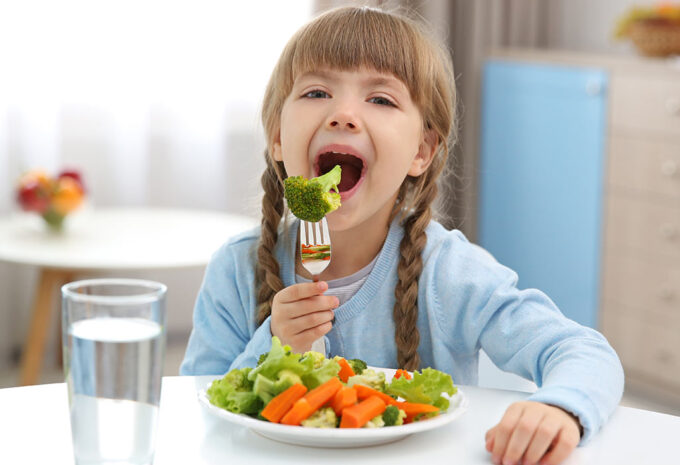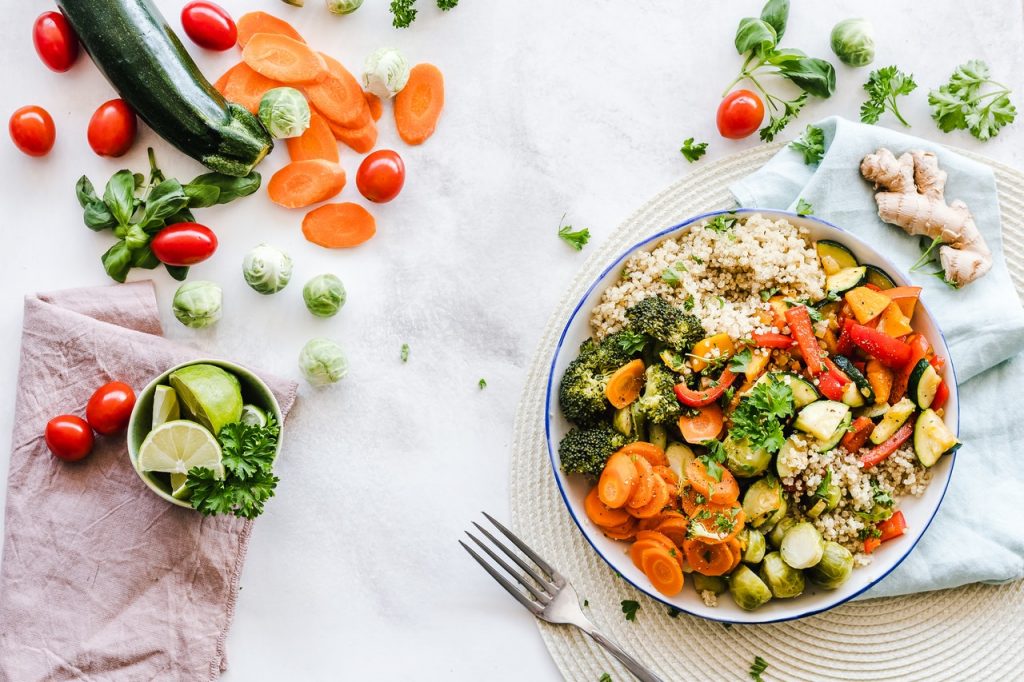The establishment of healthy habits starts at the moment the baby is born and lasts until the kid is an adult, and they can decide which lifestyle to adopt. But, at the earliest stages of their life, they depend on the parents’ decisions and choices, and they are developing the habits for the rest of their life. So, it’s normal that the baby eats only mom’s milk or formula in the first four to six months, but after that, it’s the right time to help them meet and recognize the different tastes of foods appropriate for their age. Many parents decide to prepare the blended food at home, instead of buying the pre-ready jars. We can see many of them investing in organic ingredients, especially fruits and vegetables that are often genetically modified.
Some parents even grow home gardens and get the products fresh, without using any pesticides during the process. There are some people who think it’s a modern and unnecessary approach, but let’s be real – in recent decades, the processed food took over the world. It can be really useful when we need an immediate meal, but we can’t replace all the fresh products we need with something that comes in a can. It’s completely unhealthy and increases the risks of obesity, and many conditions like diabetes or metabolic issues, and also, cancer. That’s why a lot of people are now turning to the organic way of living, so they can detox their bodies, reset the metabolism, and fix all the mistakes and damages they did before. At the same time, they are providing a nice example to their children, and teach them how to adapt to these habits.
If you are a new parent to your first child, then you probably need some tips, especially when it comes to making decisions and choosing the right food for your baby:
1. Adapt the lifestyle you want to teach them to

Source: manhattanmedicalarts.com
Your menu should be made of fresh and healthy products, that are completely balanced. The mother can start with that during the pregnancy because according to some studies, the babies can learn to make a difference between different tastes in the womb. After that, breast milk can change the taste depending on the products the mother eats. As the baby grows, they are more likely to approach the food you are serving on the table. If you are a good example for them, they will learn how to do it. Read more about this on Motherhoodcommunity.com.
2. Find trusted sellers
Buying organic means you will have to find trusted sellers because everyone can put a label over it that says “organic”. But, that type of production should meet a lot of standards, and finding the right seller can be a challenge. But, once you have them, you can be sure you will always have fresh and organic products in the fridge, and prepare delicious meals with them.
3. Don’t be afraid to use pre-ready food

Source: parenting.firstcry.com
Commercial jars usually have all the ingredients the baby needs, according to their age. At Babease.co you can find different choices when it comes to pre-ready foods for babies. According to their website, they produce these foods in a limited batch, so you can be sure it’s always fresh as much as it can be, and they meet the UK standards for organic food preparation. This is one of the ways to teach the kids different fruit and vegetable tastes, so they can adapt, and eat the whole product when they grow up.
4. Grow the products together
If you decide to start your own small garden for fresh food, you can also teach the kids valuable lessons about where it comes from, and how to grow it. We know that this doesn’t fit the modern way of living a lot, but can be a nice way to teach them how to value organic food, and avoid the other choices.
5. Combine the ingredients in balanced recipes

Source: pexels.com
Meal preparation is one of the ways to teach the kids to love this type of food. We all know that fried food is more delicious, but properly combined ingredients result in a tasty meal too. There are a lot of books that you can use as a reference while you are creating this lifestyle. On social media, you can find plenty of profiles and pages that promote organic food, and you can learn a lot of tips from them.
6. Play games
Motivate the kids to combine the foods by color, or to make a combination of tastes they prefer. Let them choose what they want. Offer a limited amount of ingredients, and let them be creative. Find songs dedicated to the fruits and veggies they love and sing together with them. Even the stories you tell them before they go to bed can be related to healthy habits.
7. Don’t push too hard

Source: pexels.com
Every one of us has different food preferences. Sometimes we don’t want something because we didn’t eat it as kids, and it can’t become a part of the regular menu. But, in most cases, we don’t like the taste. And that’s normal. Don’t push too hard to make your kids eat bell peppers if they don’t want to. You can prepare a pasta sauce with them, but if they don’t like it too, then you maybe have to wait until they decide to try it by themselves. Nothing good comes from pushing and forcing something – never forget that.
Conclusion
There is no particular right time to turn to an organic and healthy lifestyle, but surely it’s good if you don’t wait too long. Make the changes starting from yourself, so you can make a nice example for your children and the whole family. Learn how to prepare tasty meals using healthy ingredients, and of course, cheat days are allowed, as long as you have control over them. Teach the kids to appreciate the natural food, and avoid processed ones. When they grow up, they will be thankful for that.







